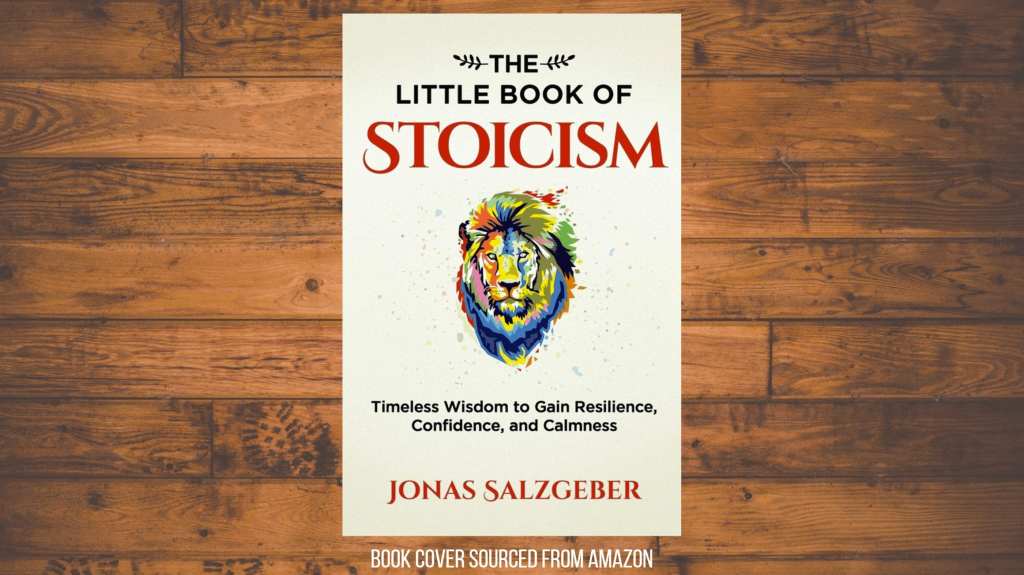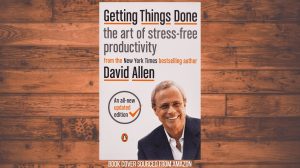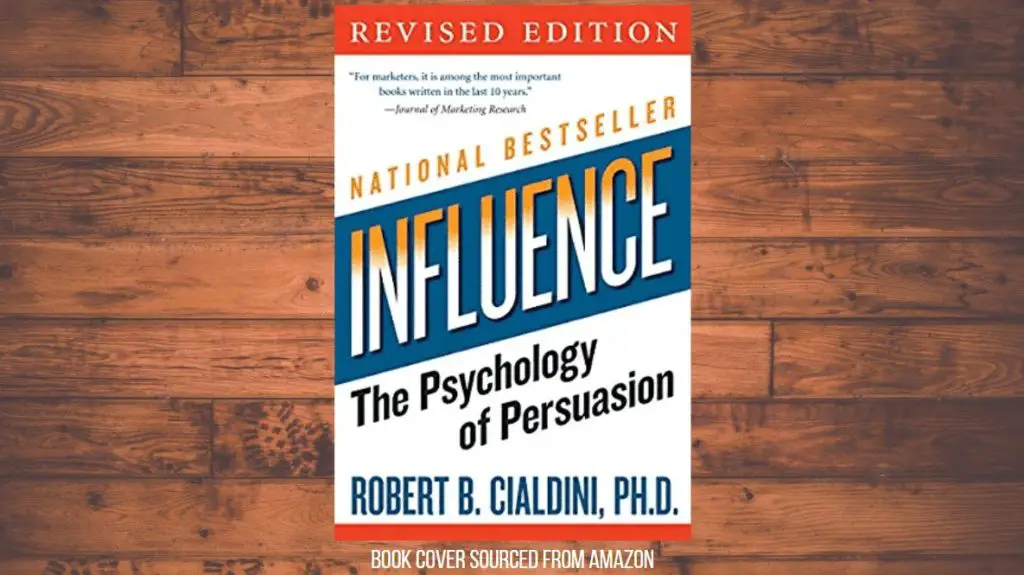This post may contain affiliate links, which means I’ll receive a commission if you purchase through my links, at no extra cost to you. Please read full disclosure for more information.
ABOUT
- Title: The Little Book of Stoicism
- Sub-title: Timeless Wisdom to Gain Resilience, Confidence, and Calmness
- Author: Jonas Salzgeber
- About the author: Jonas is an online entrepreneur interested in the pursuit of self-mastery. He cofounded njlifehacks.com, a website with over 50,000 monthly visitors. He has helped author three books, with The Little Book of Stoicism having the most success.
- Pages: 285
- Published: 2019
- **Link to book**
HIGH-LEVEL SUMMARY

This is indeed a little book of stoicism, as advertised by the title. The book is 285 pages but is comprised of concise chapters and 55 stoic practices for the reader to apply to their life.
The Little Book of Stoicism is filled with timeless and empowering advice from the stoic school of philosophy. It acts as a handbook on how to live a good and fulfilling life. Everything in stoicism will come back to that overarching goal.
In these lessons, you’ll learn how to build strength, resilience, self-discipline, and overall self-mastery of your emotions and behaviors.
The author collects the wisdom of the most prominent Stoics including Seneca, Epictetus, and Marcus Aurelius and presents the information in an entertaining and easy-to-understand fashion. Application of the material is a primary focus and the chapters guide you on how to take the information from the pages and apply it in your day-to-day life.
RECOMMENDATION
I recommend this book to anyone into self-development, self-discipline, and the mastery of life. The Little Book of Stoicism is a book that everyone should have handy and refer back to. The material can apply to all areas of your life and guide you.
This book is an easy read and a great introduction to stoic philosophy. Each page is filled with timeless wisdom that has remained useful for over 2,000 years.
This is one of those books that I wish I could recite every word from. Since I am unable to, I frequently reread this book to refresh on the lessons. Each time I reread this book, I calibrate my thoughts and behaviors to align more with the stoic principles.
TOP 20 TAKEAWAYS
** In no particular order*
1. A primary concern of stoicism is how to live and enjoy one’s life. Stoic philosophy teaches you how to live a happy and smoothly flowing life even in the face of adversity.
2. An appeal of stoicism is that nothing external is required to achieve a good life. We are very much responsible for our own happiness as well as unhappiness.
3. Strong emotions are our ultimate weakness, especially when we let them dictate our behavior. They are the root of all human suffering. Withhold automatic and impulsive reactions. Learn to control your emotions and be able to choose the right thing to do.
4. Stoicism is not about suppressing or hiding emotions. It’s about acknowledging our emotions, what causes them, and redirecting them for our own good. It’s more like taming them than getting rid of them.
5. The “stoic happiness triangle” consists of three core teachings: eudaimonia (thrive in your live), live with arete (express your highest self), and focus on what you can control.
6. In order to grow strong, people must be “shaken.” They need to be tested with struggle and challenges to realize what their potential is. What stands in the way becomes the way. Every obstacle becomes an opportunity to practice wisdom, courage, justice, and self-discipline. Setbacks and struggles actually empower us.
7. External events basically carry no meeting at all, it’s how we perceive them, it’s our judgments to give them meaning and make them seem good or bad.
8. Act for the common welfare. “What brings no benefit to the hive brings none to the bee.”
9. Only focus on what you can control. Worrying about things that you cannot influence or control is pointless and leads to emotional suffering.
10. We cannot change the things that happen in the world around us. We can only change the way we look at those things and what we choose to make of them. We cannot choose our external circumstances, but we can always choose how we respond to them.
11. When living life and setting goals, focus on the process. The process is under our control, whereas the outcome is not. We succeed or fail during the process.
12. The hands dealt by life are the hands you have to work with. The cards do not matter. What matters is how well you play the hands you get.
13. Practice voluntary discomfort like temporary poverty, putting yourself in uncomfortable situations, and purposefully foregoing pleasure.
14. Eliminate the nonessential. Focus on the essential. Also live a minimalist lifestyle.
15. Become an eternal student. Always learn and always put what you have learned into practice.
16. It’s not about the years you live, but about how you live those years. It’s possible to live a long life, but have lived very little.
17. We suffer more from imagination than from reality. What we fear will often not happen in reality, but our imagination has real consequences in holding us back. Always ask yourself if the fear or anxiety you are feeling makes sense.
18. See things objectively for what they are. Don’t attribute too much importance to things.
19. When you are insulted, ask who it is that is insulting you. If it’s someone you respect, use it as something you can improve on. If you don’t respect the source, don’t bother being affected by it.
20. Choose your company well. Associate with people who are likely to improve you.
WHAT I LIKED

55 practices and tips
I enjoyed how the book explained stoicism by casting a wide net in what it covered. I was new to stoicism when I picked up this book and felt that it covered the basics of this school of philosophy.
55 practices and tips are more than enough to begin changing your life for the better. The book goes just deep enough in every chapter. It doesn’t give you too much information and doesn’t leave out any necessary information either.
Filled with great quotes from the big stoic philosophers
Philosophers are known for their great quotes. This book is filled with them.
There are quotes under the title of every chapter and there are quotes sprinkled within the text of each chapter. Quotes will be used to support the statements in the chapters and the author will reflect on and explain things these philosophers said.
I found myself highlighting a majority of these to keep in mind for later. The wisdom is evergreen and thought-provoking.
Dense with information, but still a short read
The book has 8 chapters and 55 practices that are broken up into sub-chapters. Since the book is 285 pages, the book is divided into many small clusters of pages.
I’m sure the lessons in this book could have taken a thousand pages to explain, so it was impressive and relieving to see how concise everything was.
Can act as a handbook you keep close and refer back to
With the structure of the book and the mini-lessons, this can act as your handbook on stoicism. You can refer back to this book to re-align yourself on the path to the good life.
You won’t remember all 55 practices after one read. If you are ever in a tough life situation, this can be a great resource for you to go to. No matter what event is happening in your life, there is advice in this book that can help you deal with it.
BENEFITS FOR YOUR LIFE AND CAREER

The Little Book of Stoicism presents information that can change the life of the reader. Even if you only applied 20% of the lessons to your everyday life, you would see substantial change.
Endure pain and hardship without displaying feelings and complaint
In life and in your career, you can benefit from being able to endure pain and hardship. Both of those will inevitably come throughout your life, but how will you deal with it? How will you react to the difficulties?
The Little Book of Stoicism will teach you how. You’ll be able to accept the things that happen while maintaining level emotions. You’ll be able to endure without complaint.
Live the cardinal virtues of wisdom, justice, courage, and self-discipline
In addition to the abilities above, you will learn how to live with the cardinal virtues of stoicism: wisdom, justice, courage, and self-discipline.
Becoming more virtuous in these areas will allow you to achieve the goal of stoicism: to live a good life and achieve fulfillment.
Do things others dread doing and resist what they can’t
Once you learn to apply the practices and lessons from this book, you’ll have enough mastery of your mind and emotions to do things others dread doing and refrain from doing things others can resist.
You’ll be able to get up every day and do what needs to be done. You’ll be able to say no to addicting junk food or say no to partying with friends. Ultimately, you’ll be in control of yourself.
Master how to live life
All of this leads into mastering how to live life. Toss aside the thought of your career for now.
We are all here to live life. Learning how to live your life is important and should be done as soon as possible. The sooner you learn these stoic principles, the longer you have to use them as tools to navigate the ups and downs of life.
10 ACTIONS YOU SHOULD TAKE
1. Learn and memorize the 55 practices so you can implement them and reap the benefits. The practices and lessons in this book should act as “tools” in your toolbox to deal with life.
2. Whenever life gets hard, shift your mindset to think of it as training instead. You are being trained to become a greater person that is more wise, skilled, and resilient.
3. Seek out discomfort and embrace trials and hardships to overcome them.
4. Practice voluntary discomfort every so often. Live in poverty for a day, put yourself in uncomfortable situations, and purposely forego pleasure. You’ll build self-discipline and willpower.
5. When you feel anxiety, fear, and anger, start asking yourself if these emotions are caused by something that is within your control to change. If it is within your control, then do what you need to do. If it is out of your control, you should not pay any mind to it.
6. There is a gap between an occurrence and your response to it. Try to have control during that gap and not react impulsively. The power lies in that gap. Step in between and choose a voluntary reaction rather than an automatic impulsive reaction.
7. With every decision, you have the chance to express your highest self or not to. Focus on expressing your highest self as much as you can. Think of what you are versus what you are capable of being.
8. Do good things for the sake of doing them. Don’t do them for the good feelings or expected praise.
9. Remind yourself of the impermanence of things. You’ll become detached and will be able to accept things more easily when change happens or if you lose something you have interest or love for.
10. When something inconvenient happens to you, imagine it happened to someone else. How would you react if the inconvenience of a flat tire happened to your friend? You would say “Oh no, that sucks.” and move on with your day unphased. If you can react like this when the flat happens to your friend, it isn’t terrible when it happens to you too. Accept it and move on.
RESOURCES
The Little Book of Stoicism can be found on Amazon at this link here if you are interested in reading.



